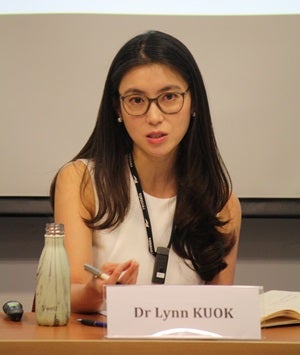Information
Venue
Start
End
‘Freedom of Navigation’ in the South China Sea: Assessing the Risks and Stakes for the Region
Introduction

‘There has been no problem with maritime navigation or overland flights, nor will there ever be in the future.’ These were Chinese President Xi Jinping’s categorical words when he visited Singapore in November 2015. His assurance reiterated former statements and promises made at various levels of the Chinese government and has been repeated since.
Given Beijing’s reassurances, should countries in the region and elsewhere be concerned about ‘freedom of navigation’ in the South China Sea? Surely, some argue, China would have much to lose if it were to cut off navigation in this vital trade artery? Is the United States, therefore, making much ado about nothing with its Freedom of Navigation operations (FONOPS), which bring with them an implicit assertion that navigational rights are at risk? FONOPS, moreover, heighten tensions in the region: Beijing perceives them as a ‘threat or use of force’ prohibited under international law.
In this talk, Dr Lynn Kuok examined the concept of ‘freedom of navigation’ and whether parties actually mean the same thing when they use the term. She argued that terminological differences unhelpfully obscure the real nature of the dispute, which centres on excessive maritime claims, including the freedom to conduct military activities in areas outside of a national jurisdiction.
She also looked at the US Freedom of Navigation Program and the rights and freedoms it seeks to defend. She considers questions such as the validity of China’s opposition to FONOPS; whether it would be better for the region if these operations were scaled down or even eradicated; and whether countries should be supporting these operations in word or deed. She also examined what we might expect from the Trump administration and whether it is in China’s interests to adopt an interpretation of UNCLOS similar to that of the United States (and the majority of countries).
The significance of FONOPS and the region’s stance on them go beyond preserving maritime rights and freedoms. At a time when countries in the region are weighing up how best to position themselves in the face of a rising China, Dr Kuok also addressed the wider strategic implications of FONOPS, including as a means to limit projections of power, and as a litmus test of US commitment to the region and its support for a rules-based international order.
About the Speaker
Dr Lynn Kuok is a senior visiting research fellow at the Centre for International Law and a senior research fellow at the University of Cambridge’s Centre for Rising Powers. She was formerly a nonresident fellow at Brookings Institution in Washington, DC, which she rejoins in July 2017, and a visiting scholar at Harvard Law School. She is a member of the World Economic Forum’s Global Future Council on International Security.
Dr Kuok works on the politics, law and security of the Asia-Pacific region, with a focus on the South China Sea dispute. She is an advocate and solicitor of the Supreme Court of Singapore and was a senior producer at a television news station in Asia. She served as editor-in-chief of the Cambridge Review of International Affairs and the Singapore Law Review.
Dr Kuok holds a doctorate in comparative politics from the University of Cambridge, a Master of Arts in law and diplomacy from the Fletcher School of Law and Diplomacy, and a law degree from the National University of Singapore.
She is the author of several reports published by Brookings Institution: ‘The U.S. FON Program in the South China Sea: A Lawful and Necessary Response to China Strategic Ambiguity’ (June 2016); ‘Tides of Change: Taiwan’s Evolving Position in the South China Sea’ (May 2015); and ‘Overcoming the Impasse in the South China Sea: Jointly Defining EEZ Claims’ (December 2014).
Event e-Flyer
